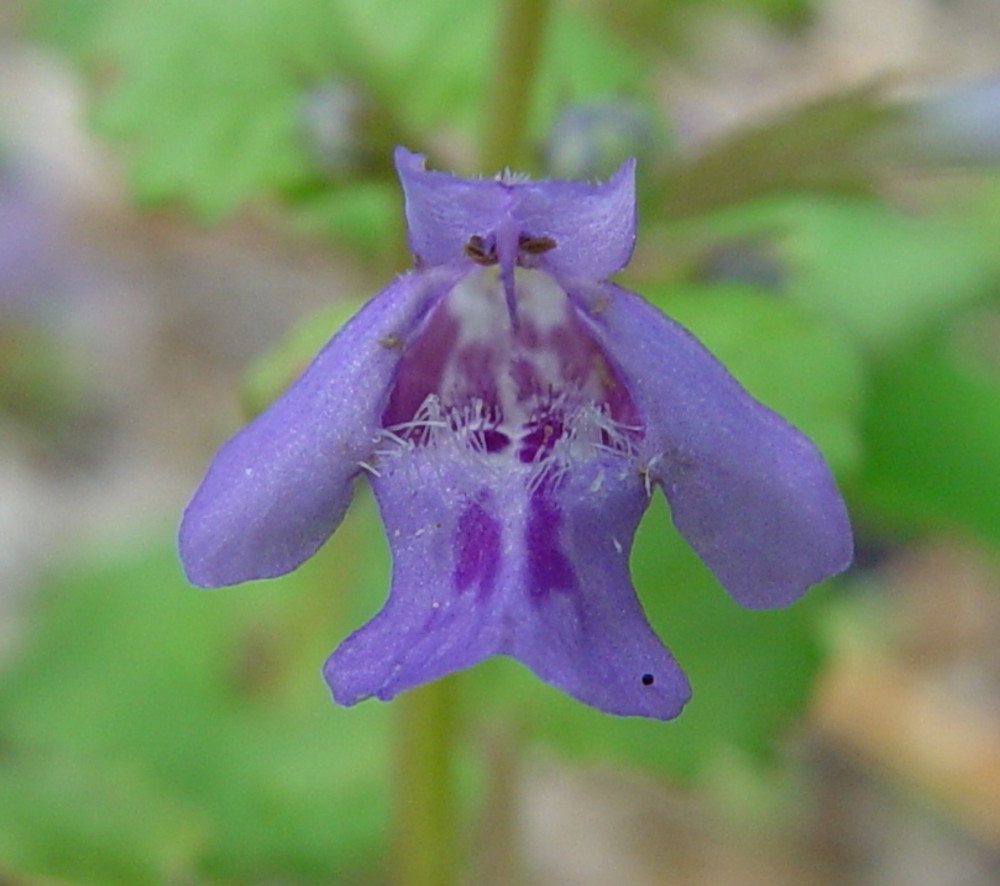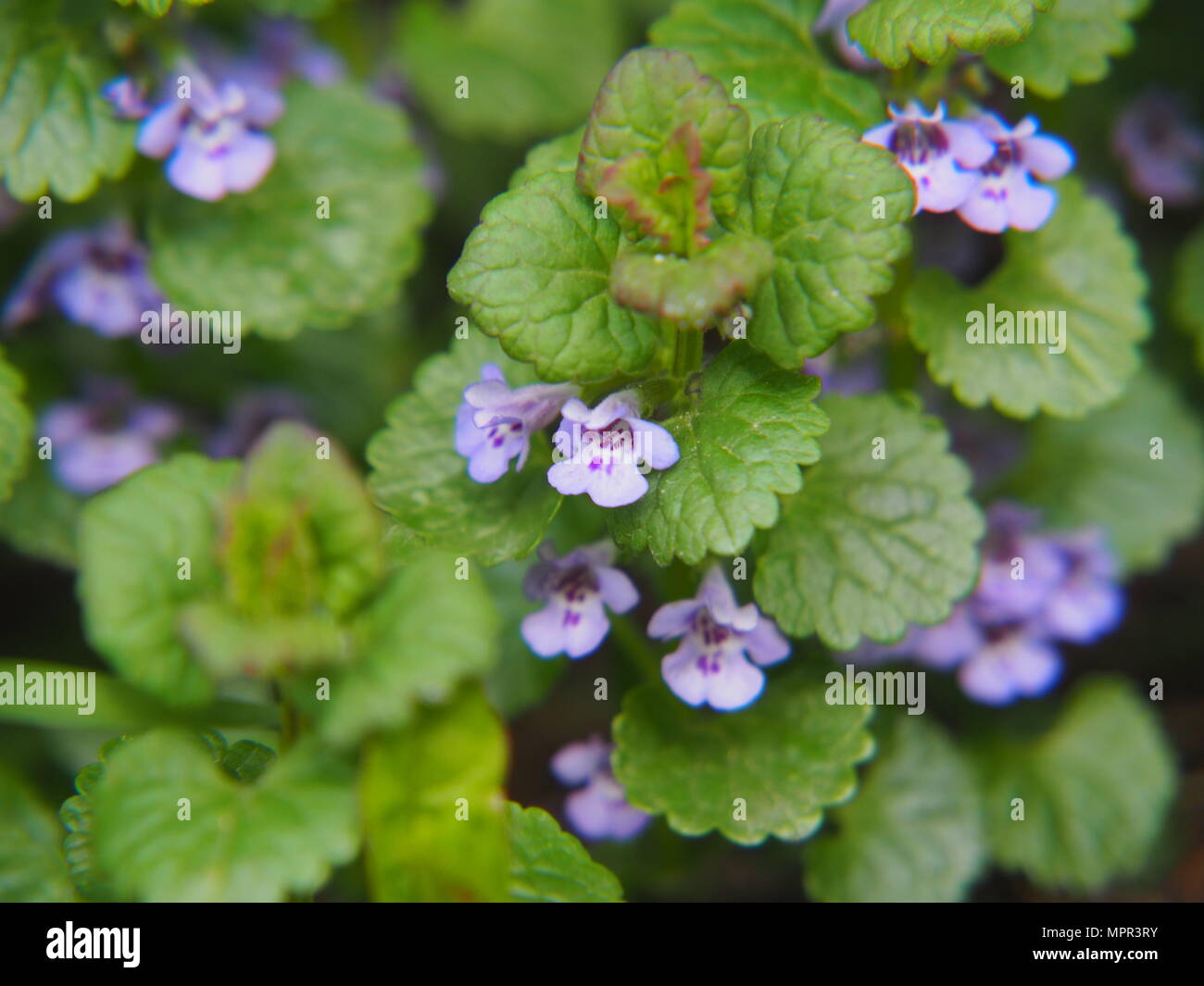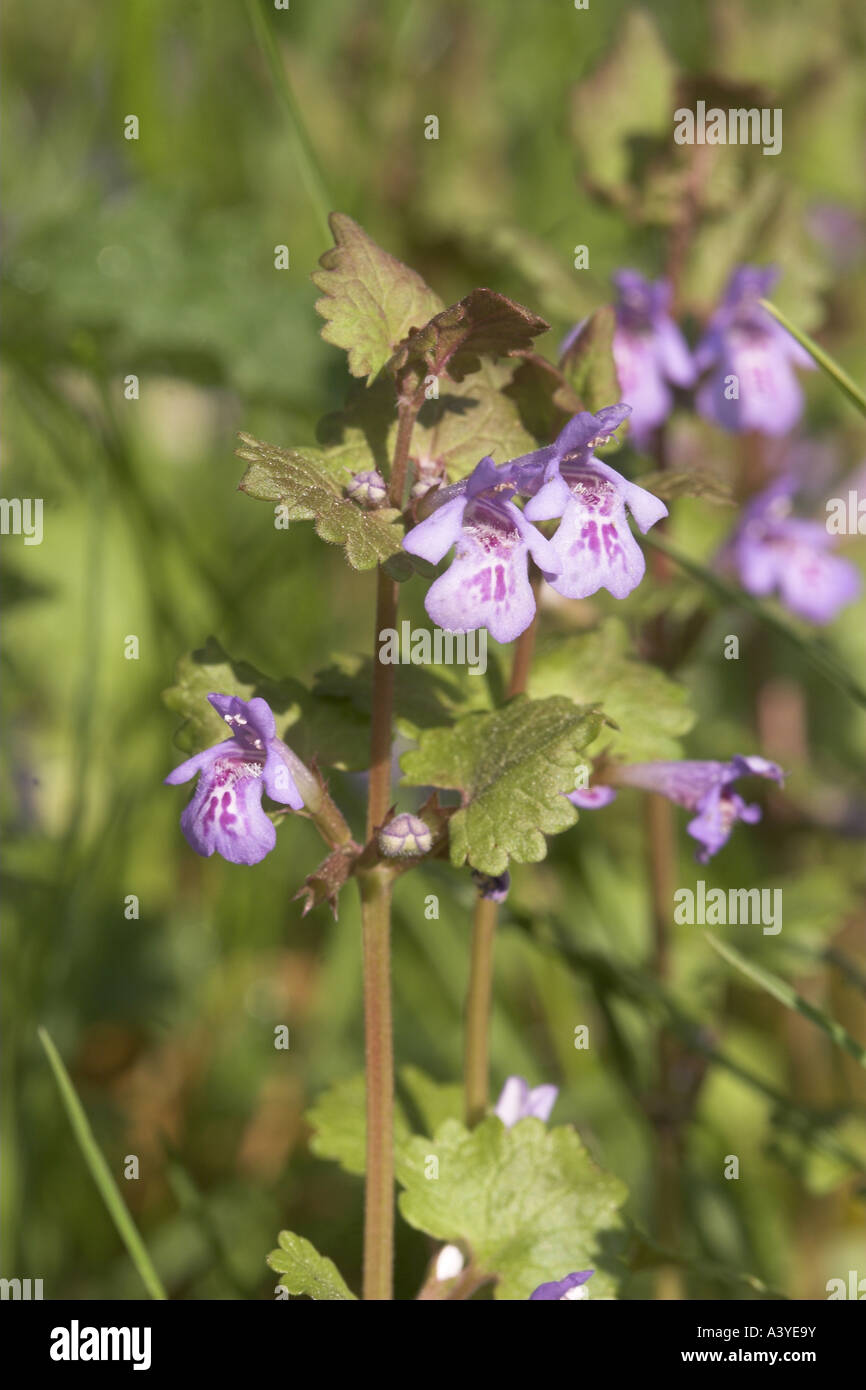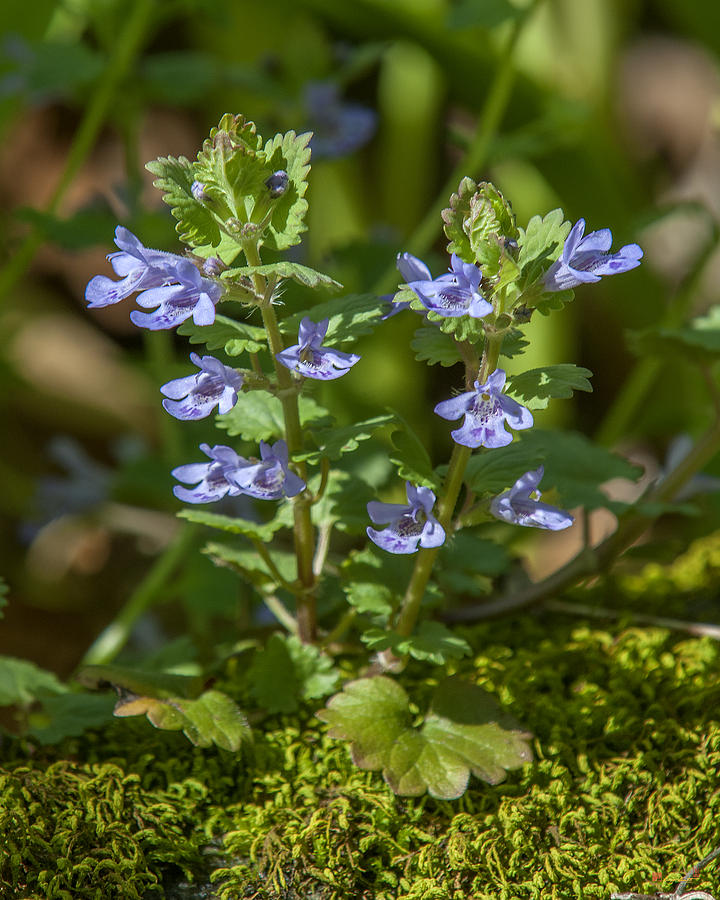
Medicinal Weeds Gillovertheground Josh Fecteau
It is commonly known as ground-ivy, gill-over-the-ground, herbicides are relied upon particularly for woodland ecosystems. The plant's extensive root system makes it difficult to eradicate by hand-pulling. Glechoma hederacea is an aromatic, perennial, evergreen creeper of the mint family Lamiaceae. It is commonly known as ground-ivy, gill-over.

Gill over the Ground VIRGINIA WILDFLOWERS
Gill-over-the-ground is a short ground-covering perennial that escapes from cultivation as a garden plant. It blooms very early in the spring. Habitat Anthropogenic (man-made or disturbed habitats ), meadows and fields Characteristics Habitat terrestrial New England state Connecticut Maine Massachusetts New Hampshire Rhode Island Vermont

Glechoma hederacea (Gillovertheground) Go Botany
Description Ground ivy is an invasive perennial in the mint family native to Eurasia. This aromatic, evergreen, creeper was introduced from Europe and can be quite weedy. It is often found on roadsides, lawns, shady spots, waste places, and thickets. Ground Ivy stems are creepers that help the plant spread.

gillovertheground photo Terry Sprague photos at
0.8 cups. every 9 days. Gill-Over-The-Ground needs 0.8 cups of water every 9 days when it doesn't get direct sunlight and is potted in a 5.0" pot. Use our water calculator to personalize watering recommendations to your environment or download Greg for more advanced recommendations for all of your plants. Water 0.8 cups every.

Glechoma hederacea (Gillovertheground) Go Botany
noun variants or gill-over-ground ¦⸗ˌ⸗⸗¦⸗ : ground ivy Word History Etymology gill entry 6 Love words? You must — there are over 200,000 words in our free online dictionary, but you are looking for one that's only in the Merriam-Webster Unabridged Dictionary.

Glechoma hederacea syn. Nepeta glechoma, Nepeta hederacea groundivy, gillovertheground
Ground Ivy, Field Balm, Gill Over The Ground, Runaway Robin: Family: Lamiaceae or Labiatae: USDA hardiness: 3-10: Known Hazards: A report in the medicinal uses says the plant should be used with caution, no reason is given. Another report says that the plant might be toxic to horses[222]. Avoid if pregnant as abortifacient. Contraindicated in.

Gillovertheground Richmond Wildflowers
ground ivy, creeping Charlie, gill-over-the-ground, robin-runaway. Scientific Name: Glechoma hederacea L. Family Name: Lamiaceae (Labiatae) - Mint Family. Identification Notes. Life Cycle. introduced perennial, reproducing by seed and creeping stems. Stems. prostate and creeping, square, rooting at nodes.

hederacea "GIllovertheground" or "creeping Charlie" Plants
Creeping Charlie ( Glechoma hederacea) - also known by the common names "gill-over-the-ground", "ale-hoof", "run-away-robin" and "ground ivy" - is a fast-growing, perennial weed that grows low to the ground. Many gardeners find it the bane of their existence! But, it does provide some value to foragers and herbalists.

G is for Groundcover Gillovertheground
Glechoma hederacea is an aromatic, perennial, evergreen creeper of the mint family Lamiaceae. It is commonly known as ground-ivy, gill-over-the-ground, [1] creeping charlie, alehoof, tunhoof, catsfoot, field balm, and run-away-robin. [1] It is also sometimes known as creeping jenny, but that name more commonly refers to Lysimachia nummularia.

gillovertheground, ground ivy (Glechoma hederacea), inflorescence Stock Photo Alamy
Ground Ivy (Glechoma hederacea) is a non-native, perennial plant from the mint family. Colonists from Europe brought this plant to North America, and it naturalized. It is known by various common names, including Creeping Charlie, ale hoof, field balm, tun hoof, gill-over-ground, or run-away-robin.

Ground Ivy or GillovertheGround DSPF0321 Photograph by Gerry Gantt
Common Name: Ground ivy Botanical Name: Glechoma hederacea L. Other Names: Creeping Charlie, Gill-over-the-ground, Cat's-foot Origin and Distribution Ground ivy was introduced from Eurasia. It is widespread throughout the eastern half of the United States (except in parts of some Southeast and South Central States) and north into Canada from Newfoundland to Ontario. Life Cycle Ground ivy is a.

Foraging Manchester GillOverTheGround The Manchester Mirror
Glechoma hederacea commonly known as Ground-ivy, field Balm, ground-ivy, gill-over-the-ground, creeping charlie, alehoof, tunhoof, catsfoot, field balm, run-away-robin, creeping jenny, Haymaids, hedgemaids, hove, lizzy-run-up-the-hedge, robin-run-in-the-hedge, run-away-robin, tun hoof, tunhofe, turnhoof, wild snakeroot is an aromatic, perennial,.

Medicinal Weeds Gillovertheground Josh Fecteau
Ground Ivy. Glechoma hederacea L. Mint family (Lamiaceae) Origin: Eurasia. Background. Also known as gill-over-the-ground and creeping Charlie, it was introduced into North America as an ornamental or medicinal plant, as early as the 1800s. Distribution and Habitat. Ground ivy occurs throughout the U.S. in all of the Lower 48 except for Nevada.

Gill over the ground photo Kuriacose Joseph photos at
Also known as Creeping Charlie and Gill-over-the-ground, ground ivy ( Glechoma hederacea) is a perennial non-native invasive plant that is naturalized throughout most of North America. Like many of our common edible weeds in the United States, it was introduced by early European settlers who brought it with them to cultivate and use medicinally.

Medicinal Weeds Gillovertheground Josh Fecteau
Creeping Charlie, ground ivy or gill-over-the-ground (Glechoma hederacea) Creeping Charlie ( Glechoma hederacea) was brought to the United States likely for food and medicinal reasons. It can form dense carpet-like mats that displace other ground plant cover. It can take over disturbed areas and is considered weedy in urban gardens and turf lawns.

GillOvertheGround Wildflower Glechoma Hederacea Stock Photo Image of flora, groundivy
Gill-over-the-ground, Creeping Charlie, Catsfoot, Run-away-robin, Hedge maids, Alehoof, Tunhoof. these are just a few of the names given to ground ivy, a member of the mint family found in moist shady areas, along hedgerows and buildings, and creeping through gardens and lawns.